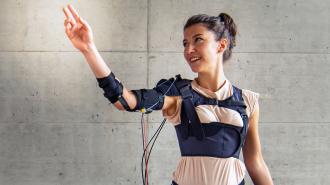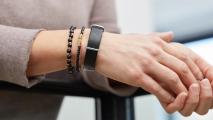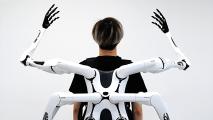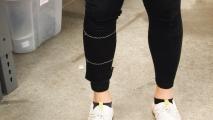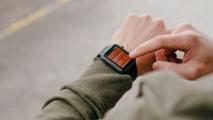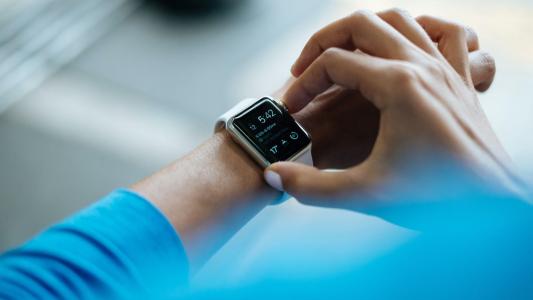Swiss researchers have developed “wearable muscles” that use sensors and AI to help people with upper-limb impairments use their arms — in testing, their device increased endurance by more than 200%.
The challenge: Impaired arm function can have a major impact on quality of life — something as simple as making a meal or dressing oneself can be hugely difficult if your arms are weakened by disease or injury.
We’ve seen wearable robots or exoskeletons that can help people with upper-body mobility issues, but they’re often expensive and awkward, which can make them less than ideal for everyday use at home.
Impaired arm function can have a major impact on quality of life.
Wearable muscles: Researchers at ETH Zurich’s Sensory Motor Systems Lab have now unveiled the Myoshirt, a soft robotic device that functions like wearable muscles for the upper body, increasing the wearer’s endurance.
The device consists of a chest harness and a cuff worn around the upper arm and forearm. Cables run from the cuff to a shoulder anchor and down to an external control box.
Sensors embedded in the fabric detect motion. An algorithm uses that information to predict the wearer’s intended arm movement and trigger a motor in the control box to pull the cables. These act like artificial tendons, helping support the movement.
The Myoshirt increased endurance by an average of 33% for participants without physical impairments.
The impact: For their study, the Myoshirt was worn by 12 participants. One had a rare form of muscular dystrophy (MD), one had a spinal cord injury, and 10 had no physical impairments.
Each participant sat with their arm straight out in front of them with a load hanging from their forearm. They were then asked to lift and lower their arm until exhaustion. The task was completed with the wearable muscles one day and without them on another.
The Myoshirt increased the endurance of all the participants, but the increase was particularly profound for the person with a spinal cord injury: 210%. For those without physical impairments, the average increase was 33%, and for the person with MD, it was 61%.
Looking ahead: While the results of the endurance tests are promising, the ETH team still has more work ahead of it before the Myoshirt will be ready to help people in their homes.
The device’s external control box weighs 8.8 pounds, and more than half the participants felt like the wearable muscles restricted their comfort and movement capabilities — the goal now is to reduce the Myoshirt’s size and weight so that it can be comfortably worn under clothing.
“In the next phase, we want to test our prototype outside the lab in the natural environment of future wearers and use the results to further improve it,” said ETH researcher Michele Xiloyannis.
We’d love to hear from you! If you have a comment about this article or if you have a tip for a future Freethink story, please email us at tips@freethink.com.
